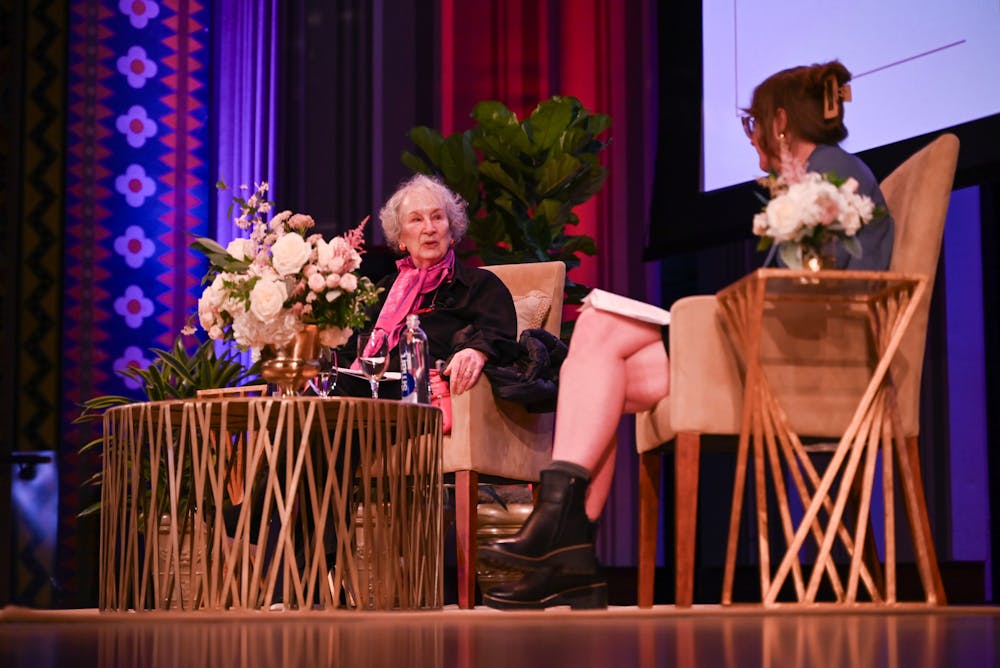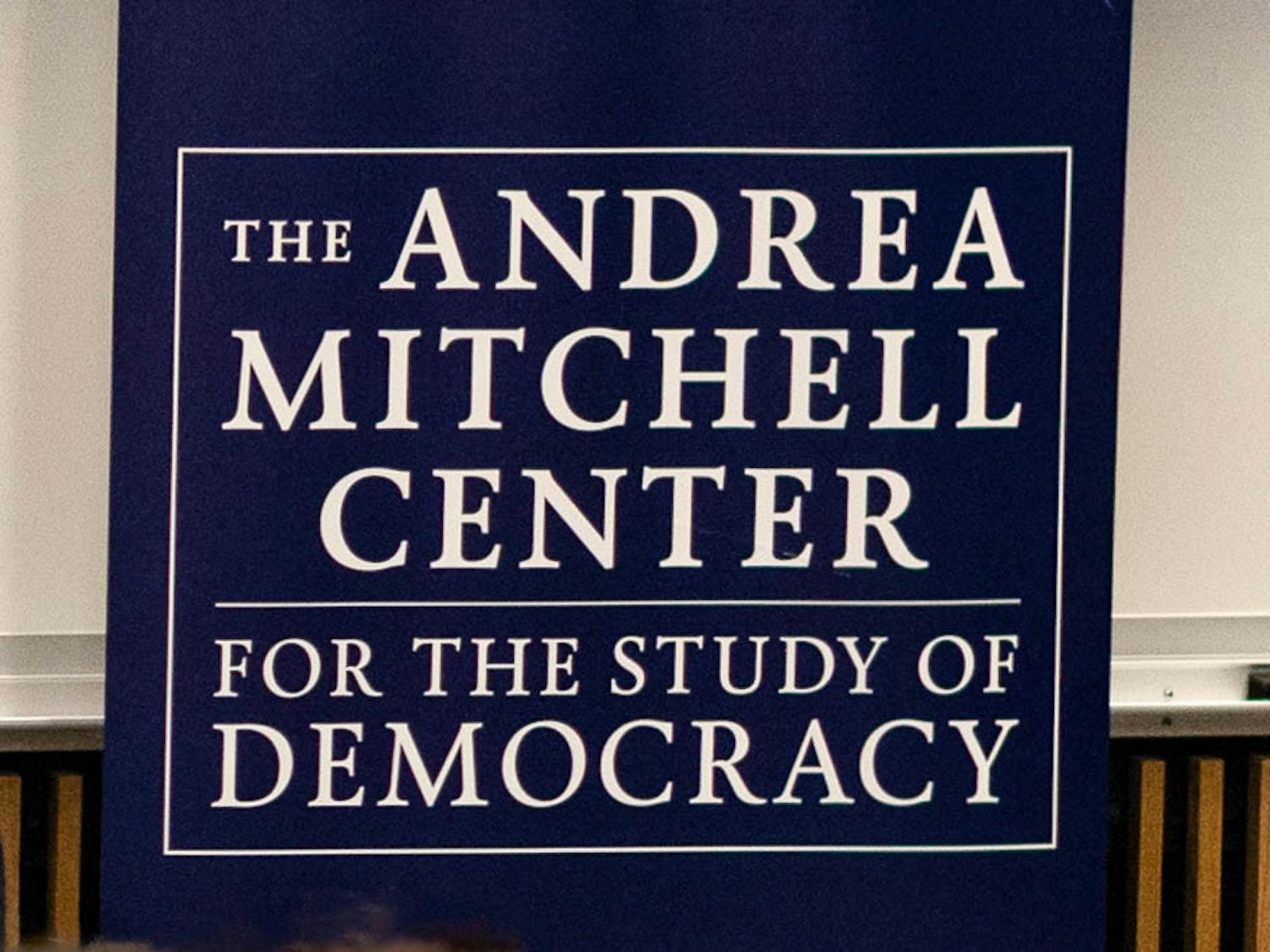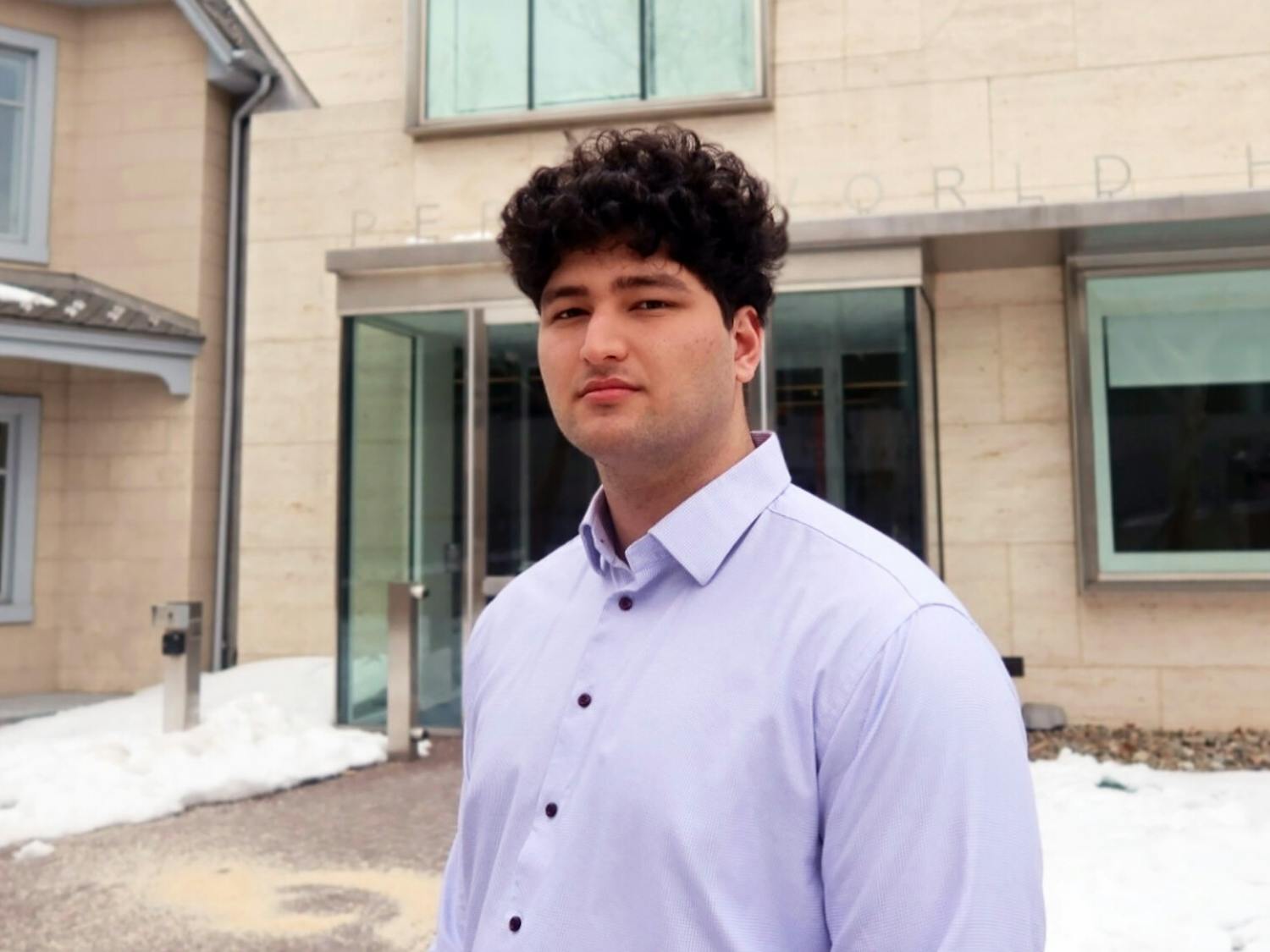Bestselling author Margaret Atwood spoke at the Stephen A. Levin Family Dean’s Forum in Irvine Auditorium on April 17, drawing an audience of over 900 people.
Atwood is a Canadian author known for her 1985 novel “The Handmaid’s Tale” and its 2019 sequel “The Testaments," among many other award-winning works of fiction, critical essays, and poetry. In conversation with Penn classical studies professor Emily Wilson, Atwood spoke about her novels and poetry, approaches to writing, and the status of women's rights.
Wilson, the College for Women Class of 1963 Term Professor in the Humanities, has taught ancient Greek and Roman literature at Penn for over 20 years. She received recognition for her 2018 translation of Homer's "Odyssey" and recently released a translation of the "Iliad." Wilson first met Atwood at the Key West Literary Festival a few years ago and said that she is a lifelong fan of Atwood's work, especially her lesser-known novels.
Atwood and Wilson both emphasized the power of literature to change human narratives.
“Literature is both record keeping and magic,” Atwood said. “You tell the past in order to avoid the future.”
Wilson agreed, saying that literature can "keep human society accountable" by looking to the past. Drawing on her interest in Greek mythology, she then brought up Atwood's 2005 novel “The Penelopiad," which retells the traditional epic from the perspective of Penelope.
Atwood said that her early reading experience with "The Odyssey," especially the story's treatment of women, prompted her to rewrite the story from another perspective.
“I was horrified by ‘The Odyssey’ as a teenager,” Atwood said. “I thought the treatment of the maids was brutal.”
RELATED:
Author Jennifer Egan, Penn professor discuss "Investigating Homelessness" at Kelly Writers House
Kelly Writers House to showcase student photography in new gallery exhibit
Atwood, who was born in 1939, said that she grew up in a dynamic era for women’s rights that fueled her work. She described an effort in the 1950s to relegate "Rosie the Riveters" to household work in order to open up jobs for men returning from fighting in World War II.
“They forced them into the home by denying the women money,” she said.
Atwood added that similar injustices are still happening in today’s political climate, 70 years later.
“They are trying to get women to stay at home by forcing them to stay pregnant, or not giving them a choice,” she said.
The discussion also touched on book bans in school districts across the country, which have included “The Handmaid’s Tale." Atwood was on PEN America's 2022 list of most banned authors with 11 bans across seven districts, and an Idaho school district banned a graphic novel edition last year. At the event, she approached the question with humor.
“I would put up a big billboard that says ‘Too Hot To Read,’” she said. “I was never too worried about boundaries.”
College junior Tryphena Zareif, who attended the event, said that “The Handmaid’s Tale” paralleled reality much closer than she had initially anticipated. She added that Atwood’s words stayed with her for years, especially due to the timing of when she read the novel in high school.
“We were assigned to read the chapter about the revolution during the week of January 6, 2020," Zareif said.
When asked about her creative process, Atwood said she always writes first and completes research later to fact check her work, explaining that starting with research might slow down the writing process.
“In my head, there’s something like your grandmother’s attic,” she said. “There’s a lot of junk up there. But if you are looking for something, you know it will probably be there.”
Her creative process applies to both novels and poems, of which she has published six collections. She said that she particularly adores Victorian long epic poems.
“Once upon a time, before I was a human, I was a Victorian,” Atwood said.
In addition to her novels, Atwood is known for her many short poems, which include "A Sad Child" and “The animals in that country." She highlighted key differences between the dramatic arc of a novel and that of a short story or poem.
“All art is a pattern, but it's a question of what kind of pattern,” she said. “A short story is a bit choppier, the wavelengths closer together. In a poem, it is every word that counts.”
Pam Lubker, a physical therapist at Penn Medicine, said that she attended the event because she was inspired by Atwood’s politics and activism and how her work resonates in the real world.
“She is not afraid to speak her mind,” Lubker said. “I like her grit and her honesty.”
Atwood said that she finds similarities between literature and writing and other scientific fields, despite their apparent differences.
“When you’re studying a life form, it’s the story of their life,” she said. “All things involve observations and patterns of some kind, and everything involves a story.”
Editor's note: This article has been updated to reflect that the event had over 900 attendees, not 200.









